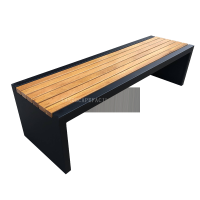Welcome to the website for landscape facilities products and knowledge.
What are the key factors in determining the table’s suitability for different types of outdoor spaces?
Selecting the right table for your outdoor space requires careful consideration of several crucial factors that determine both functionality and longevity. The primary consideration is material durability, as outdoor furniture must withstand various weather conditions. Powder-coated aluminum offers excellent rust resistance and lightweight properties, making it ideal for balconies and decks that might require frequent rearrangement. Teak wood provides natural weather resistance and develops a beautiful silver patina over time, perfect for garden settings where aesthetic integration with nature is important. Synthetic wicker combines UV resistance with elegant appeal, suitable for covered patios where direct rainfall might be limited but sun exposure remains significant.
Size and proportion represent another critical factor in table selection. For compact urban balconies, bistro-style tables measuring 24-30 inches in diameter provide intimate seating without overwhelming the limited space. Standard patios typically accommodate 60-inch rectangular tables that comfortably seat six people, while spacious gardens can utilize large 72-inch tables for entertaining larger groups. Always maintain at least 36 inches of clearance around the table for comfortable chair movement and guest circulation.
Climate adaptability goes beyond simple weather resistance. In coastal areas, tables must resist salt spray corrosion, making marine-grade aluminum or stainless steel optimal choices. For regions with intense sun exposure, UV-resistant materials prevent fading and degradation. In four-season climates, tables should tolerate freeze-thaw cycles without cracking or warping. Glass-top tables require tempered safety glass in windy locations, while solid wood tables need regular sealing in humid environments.
Functional requirements significantly influence table suitability. Dining-focused spaces benefit from standard-height tables with adequate legroom, while lounge areas often work better with coffee-style tables that encourage casual conversation. For poolside areas, consider waterproof materials that won't become slippery when wet and can withstand frequent splashing. Foldable or nesting tables provide flexible solutions for multi-purpose spaces where the same area might host dining, recreation, and relaxation activities at different times.
The table's visual harmony with its surroundings completes the selection process. Modern composite materials complement contemporary architectural styles, while rustic wood tables enhance traditional garden settings. Color selection should either blend with natural surroundings or create intentional contrast to define the dining area. The table base design should consider floor surface - cross bases provide stability on uneven ground, while pedestal bases maximize legroom on level surfaces. Ultimately, the perfect outdoor table balances practical durability with aesthetic appeal, creating an inviting atmosphere that enhances your outdoor living experience throughout the seasons.
Related search:

Recommendation
Modern Stainless Steel Begonia Wood Park Chair Outdoor Courtyard Leisure Sun Protection Bench Long Seat